|
"When you go out into the woods, and you look at trees, you see all these different trees. And some of them are bent, and some of them are straight, and some of them are evergreens, and some of them are whatever. And you look at the tree and you allow it. You see why it is the way it is. You sort of understand that it didn’t get enough light, and so it turned that way. And you don’t get all emotional about it. You just allow it. You appreciate the tree. The minute you get near humans, you lose all that. And you are constantly saying ‘You are too this, or I’m too this.’ That judgment mind comes in. And so I practice turning people into trees. Which means appreciating them just the way they are.” ~Ram Dass. This week’s quote is about practicing non-judgment. Why is it that you can walk peacefully through the woods without feeling the need to judge all the different trees and yet, when you are out in a crowd, you find yourself judging all the different people?
Perhaps the problem is all in your head. Afterall, it’s the mind’s job to evaluate all incoming data. Unlike the heart, which feels only peace and appreciation in the present moment, the mind is never at rest. It’s always busy comparing and categorizing, scanning the environment for potential threats. According to Ram Dass, the secret to being non-judgmental is to see the world through the loving lens of the heart instead of the scrutinizing lens of the mind. How do you get out of your mind and into your heart? As Ram Dass once said, “Become a soul, look around, and you’ll be amazed- all the beings around you are souls too.” By “seeing God in everyone,” one is able to look beyond physical differences and recognize the divine spark or spirit that dwells within us all. So, the next time you find yourself in a crowd and you start judging others, try getting into your soul. “When you get into your soul,” Ram Dass explained, “the entire world is made of love- trees are made of love; beings, in their souls, are made of love.”
3 Comments
"Breathing in, I calm body and mind. Breathing out, I smile. Dwelling in the present moment, I know this is the only moment." ~Thich Nhat Hanh This week’s quote is a reminder to breathe. Imagine if there was only one moment. Instead of an entire lifetime, what if you were only given a single moment to experience existence? How you choose to breathe during that one moment is going to determine the quality of your experience. If you hold your breath, you will inevitably go into a panic. If you choose instead to breathe deeply and relax into the moment, you will eventually experience bliss.
Why does breathing feel so good compared to holding your breath? For one thing, oxygen is your body’s main source of energy. You might think that food is the body’s main energy source but try not breathing for a few minutes and you will soon change your mind. Some people can survive for months without food, whereas you would only survive for about three minutes without oxygen. While it may sound like a cliché, breath really is life. That is, breathing is the same thing as being alive. If you were to come across an unconscious person lying on the floor, the first thing you would do is check if they are breathing. Breath and life go hand in hand. If you are breathing, that means you are alive. So, remember to savor the simple pleasure of conscious breath. One reason breathing feels so good is because you are actively meeting your body’s most basic requirement. When you breathe, you are giving your body exactly what it needs to survive. By breathing deeply throughout the day, you open up a steady stream of life supporting energy within your being, enabling you to experience the subtle bliss of existence with each passing moment. “We are the space in which thoughts appear, play, and dissolve like clouds drifting in the infinite sky.” ~ Mooji This week’s quote is a reminder that you are not your thoughts. You are not your worries and regrets or your hopes and dreams. You are not your memories of the past or your expectations about the future. But, if you are not your thoughts, then who are you?
Simply put, you are the consciousness that is aware of your experience. You are the silent witness- the one that is aware of your thoughts. In other words, when it comes to awareness, you are not the clouds, you are the sky. You can get so focused on the clouds that you forget to appreciate the sky they appear in. Imagine that it’s a beautiful day outside, with only one little cloud floating in the sky. Now imagine obsessing over that cloud, putting all your attention on it until you become convinced that it’s cloudy outside and that the day is ruined. In the same way, you might get so focused on a thought or feeling that it robs you of your joy in the present moment. How can you avoid this trap? As Eckhart Tolle once said, “rather than being your thoughts and emotions, be the awareness behind them.” It's a subtle shift, but one that can have a profound impact on the way you experience life. When you practice witness consciousness, you create a space between yourself and your immediate experience. This space allows you to reflect upon a thought or emotion before reacting to it. By identifying with the awareness behind your thoughts and feelings, you can experience life from the unshakable stillness at the center of your being, allowing you to carry a deep serenity within your heart wherever you go. “You suppose that you are the lock on the door. But you are the key that opens it.” ~Rumi This week’s quote is for those of you who seek the key that opens the door to higher consciousness. What lies behind this door can best be described as infinity or eternity – a blissful realm of pure love and light. The spiritual path is basically the search for the key that unlocks this imaginary door inside your heart. Where exactly is this magical key? And how can you get your hands on it as soon as possible?
Perhaps, as Rumi’s quote suggests, you’ve got it all backwards. You are not the problem that needs solving, you are the solution. Many people believe that there’s something fundamentally wrong inside. They think of themselves as a complicated puzzle that must be solved first before they can be happy. But you can spend your whole life searching for the key to happiness without ever realizing that you are holding it in your hand. You become like a rope that has been tied into a knot. You think of yourself as the knot when, in reality, you are the rope. There is really nothing you can do to force the door to higher consciousness open. No matter how hard you push, you will never get it to budge. Not because the door is locked, but because, as the poet William Holman Hunt once said, "The door of the human heart can only be opened from the inside." In other words, the eternal bliss and infinite light that you seek is who you really are. Instead of pushing on the door to higher consciousness, simply go inside and let yourself in. Ultimately, you will discover that the door to your heart was never closed to begin with. The barrier between you and eternal bliss you seek is just a figment of your imagination. So, stop fixating on finding the key, because you are the key! As Mother Theresa taught,“There is no key to happiness; the door is always open.” “There is no light without darkness – and this troubles many of us – but without it, how else would we tell one from the other? We spend half of every day in darkness; surely we should make our peace with this.” ~ Mark Frost During the recent solar eclipse, the moon passed in front of the sun, casting its shadow upon the Earth. On the surface, this seems like a pretty innocent event. However, there is often a lot of fear associated with an eclipse. What is it about darkness that scares us so much?
Afterall, without darkness there would be no light. Light and dark are more than just opposites, they need each other to exist. It's like how a magnet always has two opposite poles. You will never find a magnet that only attracts or one that only repels. Similarly, you can't have light without the presence of darkness. What would it be like to look up at the stars if there was no darkness? You wouldn’t be able to see anything at all! As Alice Feeney once said, “Stars cannot shine without darkness.” In the same way, the moon could not possibly cast a shadow on the Earth if there were no sunlight present. The experience of light depends on there being darkness, just as the experience of darkness depends on there being light. So, instead of being afraid of the dark, see it as an essential aspect of light. Furthermore, recognize that light and dark are in perfect balance on our planet. In fact, every location on Earth, without exception, averages 12 hours of daylight and 12 hours of darkness annually. When you embrace the light and reject the dark, you miss out on half of the experience. “The Earth is you. You are the Earth. When you realize there is no separation, you fall completely in love with this planet.” ~Thich Nhat Hanh This week’s quote is a simple reminder that, since the Earth is beautiful, then so are you. This idea rests on the notion that you are not separate from the environment, rather you and the world are one and the same. The water in your blood, the calcium in your bones, the salt in your tears- they didn’t just appear out of nowhere, they are derived from the Earth. You are not just a guest here on this planet, you are this planet.
While this sounds like a bit of a cliché, there is also some truth to it. Human beings are kind of like the Earth’s nerve cells. The reason you can sense things like hot and cold or rough and smooth is because there are millions of tiny nerve cells in your skin that sense pain, pressure, temperature, and texture. You also have specialized nerves that help you see, hear, taste and smell. These individual nerve cells are not separate from your body, they are your body. In the same way, you are not separate from the Earth, you are the Earth. There is no real separation between you and your physical environment. You might think that everything inside of your skin is you, whereas everything that you encounter on the outside of your skin is not you- it’s something other than you. But inside and outside are just concepts, just two aspects of the same thing. As Alan Watts once said, “you can’t have an inside without an outside, just as you can’t have solid without space.” So, take a moment today to appreciate the beauty of the world. And smile inwardly, recognizing that what you are really looking at is you. “To offer no resistance to life is to be in a state of grace, ease, and lightness.” ~Eckhart Tolle This week’s quote is a reminder that your inner resistance is the only thing stopping you from experiencing joy in this moment. Of course, putting this lesson into practice is easier said than done. It’s like recognizing that your excess muscle tension is the only thing preventing you from feeling relaxed right now. Or that holding your breath is the only thing preventing you from breathing deeply and fully. In either case, the solution is to let go of your inner resistance. How do you do this? By entering into a state of grace.
Being in a state of grace involves surrendering to the inevitable ebbs and flows of existence. But grace is so much more than that. For example, when someone accepts an award with grace they do so from a place of gratitude and humility. When someone dances with grace, they move fluidly and with precision, embodying both beauty and ease as they move through space. In contrast, dancing ungracefully involves making sudden, herky-jerky movements that lack any kind of finesse. Therefore, living in a state of grace means being kind and humble as you move harmoniously through the world with an unshakeable sense of inner calm. Being in a state of grace also means that you recognize the innate beauty of the world and have a heartfelt appreciation for the small joys and wonders of everyday existence. It’s a fortunate feeling, as if the whole universe is conspiring in your favor. It’s like the feeling you get when you are driving through town and every light turns green as soon as you reach the intersection. Or when you pull into a crowded parking lot and there is a space just for you. Grace is not only a recognition that life is a blessing, it’s also a recognition that you are blessed. So, whatever it is you have to do today, try doing it with grace. Simply by dropping all forms of resistance, you will naturally find harmony within. “Every hour of every day is an unspeakably perfect miracle.” ~ Walt Whitman This week’s quote is a reminder about the miraculous nature of existence. Since living as a human being on Earth is the only thing you have ever known, you might be tempted to take the experience of life for granted. But many things that people consider to be factors of “ordinary life” are actually pretty miraculous if you look at them the right way.
For example, we accept without question that, in the beginning, there was nothing at all. Then, in the center of this infinite void, there was a gigantic explosion and all the matter and energy in the universe spontaneously burst forth into existence. We also think it’s perfectly ordinary that we’re currently floating in space on a little blue and green sphere that revolves around a much larger sphere of pure, life-giving energy. You might even think it’s no big deal that you were able to manifest yourself on this planet out of nowhere as a tiny baby that has since grown up into a creative, intelligent being. Let's face it, there is nothing ordinary about this human experience. Whenever I hear people talking about ordinary life I always think, ordinary compared to what? Is there some kind of extraordinary existence that I don’t know about? Perhaps normal life is the real miracle? When you consider the vast, complex chain of events that had to occur in order for you to be born as a human being here on Earth, miraculous is the only word that can be used to describe it. As Thich Nhat Hanh once said, “People usually consider walking on water or in thin air a miracle. But I think the real miracle is not to walk either on water or in thin air, but to walk on earth. Every day we are engaged in a miracle which we don't even recognize: a blue sky, white clouds, green leaves, the black, curious eyes of a child—our own two eyes. All is a miracle.” “Your task is not to seek for love, but merely to seek and find all the barriers within yourself that you have built against it.” ~Rumi Do you want to fall in love? Of course, we all do! Falling in love feels great! Remember what it felt like when you first fell in love? Your heart opened and your breath felt free and easy inside your chest. You had a whole new appreciation for the beauty of life. The future appeared bright and full of possibilities. You were content in the present moment and excited about all the happy moments that were coming your way in the future.
What is stopping you from feeling like this every day? Afterall, when you first fell in love and felt all warm and fuzzy inside, it was your heart that was opening. The experience of love flowing through your being is what felt so good at the time, not the love coming to you from someone else. Rumi believes that love inherently exists within each of us. Love is our basic emotional state, although it is often buried under accumulated layers of stress and emotional baggage. Therefore, to experience love right now, you don’t need to seek it out or acquire it from an external source, you simply need to dissolve the blocks inside your heart that inhibit its natural flow. Imagine an old, tangled hose that is attached to a water faucet. If you turn the faucet on, water will start to flow into the hose. However, if there are any kinks in the hose, the water will get stuck. The moment that you remove all the kinks, the water will begin to flow freely again. In the same way, love is always flowing through your heart but your fears, insecurities, and past traumas act as kinks, impeding its flow. So, this Valentine’s Day, unkink your heart! Let go of your fears, take a deep breath into your chest, and allow yourself to fall in love all over again. “The way we experience the world around us is a direct reflection of the world within us.” ~ Gabrielle Bernstein This week’s quote is a reminder that your internal state has a direct influence on how you perceive and experience the world. It rests on the basic assumption that your mind is like a lake. When the surface of a lake is calm, it accurately reflects the world around it. When the water is agitated, the reflection gets distorted. Therefore, in order to accurately reflect reality, it is important to keep your inner-lake as calm as possible.
One way to keep your inner-lake calm is by keeping it still. When your mind races, it creates waves upon the surface. These waves are caused primarily by fear-based emotions such as worry, doubt and insecurity. Unresolved emotions like anger or jealousy can also contribute to these waves. Carrying around this inner turmoil has a way of amplifying your external experiences, making even the smallest inconvenience feel like a massive personal attack. When you perceive the world through a lens of fear, you begin to view the world as a threatening place- one where everyone and everything is out to get you. Of course, calmness is only part of the equation. Clarity is also important when it comes to accurately reflecting reality. Dirty water also reflects the world around it, but the reflection will likely be vague and blurry. What is the best way to achieve mental clarity? Again, stillness is the key. As Lao Tzu so succinctly put it, “Muddy water, let stand, becomes clear.” The idea being that, if you leave a muddy puddle undisturbed for long enough, the mud will settle to the bottom, leaving the water crystal clear. In the same way, if you want to bring more calmness and clarity to your inner world, you simply need to step back and be still, allowing space for the process to occur naturally. “To fall in love with yourself is the first secret to happiness.” ~Robert Morley This week’s quote is a reminder that self-love is the key to living a happy, healthy existence. However, this quote also leaves a lot to be desired. Suggesting that you need to fall in love with yourself in order to be happy implies a kind of forced self-infatuation. But self-love is not the same thing as vanity. It's not about gazing adoringly at your own reflection, it’s about treating yourself with kindness and respect.
Is it even possible to be in love with yourself? To do so, you would first need to divide yourself into two equal halves: one half of you that is giving love, and the other half that’s receiving it. However, you can’t just split yourself in two because, as we have discussed in previous blogs, you are one. But, if you are indeed one, then how exactly are you supposed to love yourself? Simply by recognizing that you are, essentially, the energy of love- the same loving energy that created this world and everyone in it. Ram Dass once described love not as a fleeting emotion but as a fundamental way of being. “This love is actually part of you,” he explained, “it’s always flowing through you. It’s like the subatomic texture of the universe.” He explained that being present to this love is like “relaxing endlessly into a warm bath that surrounds and supports your every movement so that every thought and feeling is permeated by it.” So, breathe easily and relax into the loving energy that is always present inside your being. When it comes to happiness, the love that radiates from your own heart is what matters, not the love that comes to you from the outside. By cultivating self-love, you learn to fill your own cup. Only when your cup is full can you share your love freely with others. “Yesterday I was clever, so I wanted to change the world. Today I am wise, so I am changing myself.” ~Rumi This week’s quote has the potential to completely transform your life. Many of us have reached a certain level of understanding regarding the true nature of reality. At some point, you may have believed that you could change the world, if only you could convince all of humanity to get on board with your ideas. However, this kind of thinking is missing the point. Ultimately, it’s not about changing the world, it’s about changing yourself.
Enlightenment, or awakening to the truth about life, can be compared to a blind man who suddenly regains his sight. The world at large would be unaffected by this turn of events- everyone else would continue living their lives as if nothing out of the ordinary had happened. The only difference being that the formally blind man is now able to perceive his reality with much more clarity. Similarly, reaching a higher understanding about your existence does not necessarily change your reality, it simply allows you to navigate it more effectively. Many of us are operating under the false assumption that, once we awaken to the truth about our existence, all our problems and frustrations will disappear. But the world doesn’t stop coming at you just because you see it more clearly. You will still need to deal with the various inconveniences and adversities of life, no matter what personal epiphanies you come to. Since changing the world isn’t an option, the best thing you can do is change yourself. Life will invariably present challenges, there’s nothing you can do about that. All you can really do is change the way that you react to those challenges. It’s not that your life suddenly becomes free of difficulties, it’s that you learn how to create a sense of ease inside your being wherever you go. So, let go of the idea that you need to bring the world into harmony and focus instead on maintaining harmony within. “Suppose time is a circle, bending back on itself. The world repeats itself, precisely, endlessly.” ~Alan Lightman This week’s quote makes a great point about the cyclical nature of experience. The fact is, time does not stand still, it flows. We like to think of time as flowing like a river, constantly moving and changing and adapting to the landscape as it makes its way to the sea. However, time is less like a natural river and more like the “Lazy River” that you would find at the local waterslide park (the one where you float around endlessly in a giant circle).
There is a certain cadence to the way time passes, to the way that the years come and go. But, don’t forget that this cadence is the direct result of the Earth floating around in a giant circle. In fact, our whole concept of time is linked to the movement of our planet. After all, if the Earth were to suddenly stop all movement and be perfectly still, time would also appear to be standing still. We would all be stuck living in the eternal now, with only our clocks to tell us how much time has gone by. So, is time really flowing or is it going in circles? Why can’t it be both- like some kind of flowing circle? Better yet, maybe we ought to think of the passage of time as a spiral. Because, even though you find yourself once again at the beginning of a new year, things are not exactly the same as they were a year ago. Therefore, keep on spiraling! Whether you find yourself on a downward spiral or an upward spiral this year remains to be seen. As long as you continue to grow and expand as time goes by, you should be ok. “You never achieve real success unless you like what you are doing.” ~ Dale Carnegie On December 26th, back in 2013, we officially opened the doors to Well Being for the first time. Starting our own business was a scary experience! We didn’t really know what we were doing and it was extremely daunting not knowing how we would be received. All we knew is that we wanted to be of service- to bring as much love and healing light into the world as we possibly could. Like any small business owner that is just starting out, we took a leap of faith and hoped for the best!
Over the years we have experimented with many offerings, including skincare, yoga classes, sound healing, SUP yoga, massage workshops, and talks on a whole range of enlightening topics. These experiences gave us the opportunity to learn and grow both professionally and personally, and we connected with many wonderful and inspiring healers, teachers and guides. The past 10 years have also provided many challenges, including several years of construction projects in our little town, some of the biggest winters on record, and a global pandemic- just to name a few! We can honestly say that we have been challenged and enriched in ways we never knew possible over the last ten years. We are truly humbled and grateful for every customer and client who has stepped foot in our business and supported our dream. Without your support none of this would be possible! We also have a deep appreciation for all the amazing therapists and employees we have had the pleasure of working with during this time. Each one has helped us on our journey and many have become life-long friends. Who knows what the next 10 years will bring? One thing we are certain of is our dedication to serve and provide value to the best of our ability. We look forward to evolving Well Being with the hope of supporting you on your journey to relaxation, connection and transformation. From the bottom of our hearts, thank you! "Christmas is not a time nor a season, but a state of mind." ~Calvin Coolidge It’s the most wonderful time of the year! Except, if we are being perfectly honest, it’s not really all that wonderful, is it? It’s actually the coldest, darkest, bleakest time of the year. However, faced with a choice between succumbing to misery or rallying together to create warmth, connection and cheer, mankind has traditionally chosen the latter.
Throughout human history, we have gathered together at this time for the sole purpose of keeping spirits high. Saturnalia, for example, was an ancient Roman festival dedicated to the god Saturn, celebrated around the winter solstice, which involved feasting and gift giving. Later on in their history, the Romans would celebrate the birth of Sol Invictus, the sun god. During this time, temples and public spaces were decorated with evergreen boughs, lights and wreaths, symbolizing life and the return of light during the dark winter months. The Yule festival, from the ancient Norse and Germanic people, also celebrated the return of the light and featured feasts, bonfires, evergreen decorations and gift giving. Therefore, let’s not get too caught up in semantics when it comes to celebrating Christmas. The spirit of the Holidays comes to us from traditions that have been with us for thousands of years. What all these traditions have in common is that they celebrate the light during an otherwise dark time. Faced with a pervasive lack of warmth and light, we gather together to create our own. It’s tempting to just say “Bah, humbug!” to the whole thing and retreat into the comfort of your own solitude, however that would be missing the point. It isn't the cold weather or the lack of daylight that determines how enjoyable this time of year can be, it’s you! “At times, our own light goes out and is rekindled by a spark from another person. Each of us has cause to think with deep gratitude of those who have lighted the flame within us.” ~Albert Schweitzer This week’s quote reminds us to recognize the positive contributions of others. In last week’s blog, we concluded that real gratitude is experienced when you are grateful for life itself. While this is true to a certain extent, it doesn’t quite capture the essence of gratitude. It leaves out perhaps the most important aspect: being grateful for other people. While it is important to be thankful for the journey of life, real gratitude is experienced when you have a deep appreciation for those who contribute to your journey.
To better appreciate the value of others, imagine how unsatisfactory your life would be if nobody else existed except you. Besides being really difficult, life would be devoid of any connection, humor or meaning. It is the presence of other people that makes life worth living. Let’s face it, life isn’t easy. It’s hard work to always carry the light inside your heart. Inevitably, there will be times when your light flickers and goes out. That’s why it is important to be grateful for the people that make your existence more bearable- for anyone who rekindles your inner flame. Remember that keeping the collective flame alight is a reciprocal process. As such, there will be times when you are the one who provides the necessary spark for others. How will you know when it’s your time to shine? As the poet Rumi once wrote, “If everything around seems dark, look again, you may be the light.” "Abundance is not something we acquire. It is something we tune into." ~Wayne Dyer The scene depicted in this week’s photo is our unique take on the Horn of Plenty, an ancient symbol of abundance and prosperity. Also known as a Cornucopia, it is typically shown overflowing with fruits, grains, root vegetables and flowers. Its curved form represents an endless flow of abundance, a visual representation of a bountiful harvest. We often see the Cornucopia this time of year, to the point that it has become synonymous with the Thanksgiving holiday. But what exactly does a display of abundance have to do with giving thanks?
A feeling of gratitude is the natural response that most people have when experiencing abundance. Simply put, when you look upon an abundant scene like the one above, you can’t help but feel a sense of richness and plenitude. Witnessing such abundance gives you a whole new appreciation for life and for the unlimited gifts that are freely given to us by the Earth. By acknowledging the generous nature of existence, you become grateful just to be alive. As Wayne Dyer once said, “Gratitude is the complete and full response of the heart to everything in the universe.” What can you do to foster an abundant mindset this Thanksgiving? It starts by becoming aware of the times when the scarcity mindset takes over. Whenever you feel like there isn’t enough, chances are you have fallen victim to scarcity. When you only concentrate on what you don’t have, you will never feel like you have enough. Switching from a scarcity mindset to an abundant mindset is relatively straight forward. Instead of fixating on what you don’t have, appreciate what you do have. In other words, to experience abundance right now, tune into the richness and blessings that are already in your life. Remember that true gratitude is not just being thankful for the good things in life, it is being thankful for life itself. "Change is inevitable, but transformation is by conscious choice." ~Heather Ash Amara This week’s quote is a helpful reminder of what transformation is all about. The process of transformation is often misunderstood by those on the spiritual path. We see the way that caterpillars transform themselves into butterflies and we falsely believe that one day, we will undergo a similar process. However, try as you might, you will never spontaneously sprout colorful wings and flutter away.
This is not due to some failure on your part, it’s simply because you are not a caterpillar, you are a human being. There is really no escaping from yourself. You will always be you, no matter what you do. Regardless of how much transformation you experience in your lifetime, you will still be a human being in the end. So, what exactly are you supposed to transform into? The real question is, what kind of human being do you want to become? As Heather Ash Amara points out, change is going to happen anyway, whether or not you put any effort in. In fact, you could take no action at all and still undergo a transformation of sorts. The only difference is you might not like what you transform into. Real transformation, therefore, involves taking conscious control over the process of change. If change is going to happen anyway, then transformation means purposely changing for the better. Of course, transformation doesn’t happen overnight. It’s the result of a sustained, intentional effort to evolve and grow and become the best possible version of yourself. There are no shortcuts. There’s no magic pill you can take or button you can push to transform yourself. Instead, transformation is the direct result of your daily actions. So, instead of waiting passively for change to happen to you, take steps today towards becoming the person you’ve always wanted to be. “Nothing exists except atoms and empty space; everything else is opinion." ~Democritus This week’s quote brings up an important point. Although we tend to take life very seriously, the universe is basically a creative interplay between atoms and empty space. If you were to zoom all the way out to the galactic scale, the universe would appear as an infinite void, full of sparkling lights. If you were to zoom in all the way to the atomic scale, you would find a similar scenario.
Space is everywhere- it’s the invisible glue that holds our whole universe together. But the universe is not just empty space, it also consists of light and matter. And all matter in the universe consists of atoms. Scientists estimate that the average human consists of around a billion billion billion atoms. Scientists have also determined that an atom is 99.9999999% empty space. How much space is inside an atom? If you were to picture the nucleus of an atom as being the size of a peanut, then the whole atom would be the size of a baseball stadium. That’s a lot of empty space. In fact, if you eliminated all the empty space inside your atoms, then your whole body would be able to fit inside a particle of dust, and all of mankind would fit into the volume of a sugar cube. So, embrace the space that is all around you. Space is everywhere- not just on the outside but on the inside as well. Space is like the hidden canvas upon which the whole universe is created. It’s also a common thread that binds us all together. The space inside your atoms is the same as the space that’s inside mine, which is the same as the space that exists between the stars in distant galaxies. It’s all the same space! So, the next time you feel burdened by the heaviness of the world, remember that emptiness is an essential component of all existence. “Sometimes letting things go is an act of far greater power than defending or hanging on.” ~Eckhart Tolle Fall is the time of year when the natural world demonstrates just how beautiful the act of letting go can be. As the trees release their leaves to the wind, we are reminded of the importance of releasing that which no longer serves us. But what exactly does it mean to let go? And what is the best way to do it?
Letting go of something means that you stop carrying the emotional weight of it within your heart. In the case of emotional trauma, letting go means that while you acknowledge the past, you no longer allow it to bring you down. Letting go is not just releasing past emotional wounds, it’s also a heartfelt belief that better things are coming your way. As the author Daphne Rose Kingma once said, “Holding on is believing that there’s only a past; letting go is knowing that there’s a future.” While this is a helpful explanation of what it means to let go, it doesn’t explain how to do it. Perhaps it’s helpful to think of letting go as an ongoing process instead of a one-time occurrence. Afterall, deciduous trees don’t suddenly dump all their leaves overnight, it’s a process that happens gradually over time. As Eleanor Brown once said, “Letting go may sound so simple, but rarely is it a one-time thing. Just keep letting go, until one day it’s gone for good.” So, release whatever it is that’s weighing you down. It may seem difficult at first, but it’s actually the easiest thing you can do. Holding on takes effort, whereas letting go requires no effort at all, other than a willingness to surrender. Ultimately, letting go involves appreciating life as it is, rather than getting hung up on how you think it should be. “I am not what happened to me. I am what I choose to become.” ~Carl Jung This week’s quote refers to a relatively simple concept that has the power to completely transform the way you experience life. It’s a reminder that you are not a product of your past, you are the architect of your future. Whatever happened to you in the past is part of your personal history, but it isn’t who you are right now. In other words, your memories of past experiences are still valid, but they don’t define you as a person.
As Carl Jung would say, you are not your regrets, you are your aspirations. You are not the mistakes you have made or the adversities that you have endured. Who you are is better defined by how you respond to life’s challenges, how you choose to rise up in the face of adversity. Regardless of what you have been through, you always have the option to choose resilience over despair. Living your life while focusing on the past is like driving your car on a busy freeway with your eyes glued to the rearview mirror. While it can be informative to look backwards on occasion, focusing solely on the rearview mirror will increase your chances of having an accident since doing so prevents you from focusing on what is happening in front of you right now. Much better to keep your focus on the present than to remain obsessed by that which has already passed you by. So, liberate yourself from your own personal history. However, don’t get too caught up in defining yourself by your aspirations. As Carl Jung also explained, “You are what you do, not what you say you’ll do.” Therefore, instead of making plans to transform, why not start your transformational journey today? It begins by letting go of who you used to be. By releasing yourself from the shackles of the past, you give yourself the ability to create yourself anew in the future. "You yourself are the eternal energy which appears as this universe. You didn’t come into this world, you came out of it, as leaves from a tree." ~Alan Watts This week’s quote is a reminder that we are fundamentally the same thing as the reality that we behold. On the surface, this sounds like a fairly obvious notion. Afterall, how could you possibly consist of anything else besides the eternal energy of the universe? However, many people feel disconnected from the world, regarding themselves as strangers in a foreign land, unaware that they are a creative expression of the same lifeforce energy that gives rise to all of existence. What can you do to maintain a sense of connection to the greater whole?
One way to appreciate your connection to the universe is by understanding where all the atoms in your body come from. All the various elements that make up your body were formed inside of stars which have exploded, reformed, and exploded again over billions of years. In fact, the hydrogen atoms in your body were formed during the Big Bang itself which happened an estimated 13.8 billion years ago. It’s crazy to think that atoms formed inside an impossibly huge explosion which took place at the dawn of time would one day become an essential part of our bodies, yet here we are. Another way to understand how you are fundamentally connected to the universe is to consider the second part of this week’s quote, which explains that you didn’t come into this world, you came out of it. Alan Watts compares how we come out of the Earth to the way a leaf grows on a tree. An individual leaf may have its own unique size and shape, but it is also an inseparable part of the tree as whole. It appears that Earth is a planet that naturally produces people, just as certain trees will naturally produce fruit, as long as all the conditions are right. So, instead of thinking of yourself as an isolated individual, alone in a vast universe, remember that you are a unique manifestation of the same basic energy that makes up everything around you. You didn't just appear here by accident one day, rather you have been here all along in the sense that your essential energy is the same energy that creates and sustains the entire universe. You are not a separate entity that came into the universe from somewhere else, rather you are the universe itself- experiencing life as a conscious being for a little while. “Things change. People change. Everything changes. The universe is in a flux. Energy reinventing itself constantly.” ~ Gina Linko Autumn has arrived in Tahoe and, as the leaves begin to turn, we are reminded that life is always changing. Change is not only an inescapable fact of life, it’s also the very nature of reality. Unfortunately, change is also one of the things that we fear the most. So, what can we do to cope with the impermanent nature of existence? You are probably familiar with the saying that the only constant in life is change, but how well do you really understand the concept of impermanence?
Impermanence is a fundamental aspect of the human experience. Nothing that you encounter in life is permanent. Everything that you experience is in the process of vanishing, only to reappear again in a different form. All things in the physical world, including your own body, are subject to impermanence. In fact, scientists have proven that every single cell in your body is replaced every 7 to 10 years. As a result, you literally aren’t the same person that you were ten years ago. This state of impermanence is not only limited to the physical world. Your thoughts, emotions and external circumstances are also in a constant state of flux. The universe itself is a dynamic energy system, and energy never wants to be static. The nature of energy is to move, to flow, and to transform itself. Knowing this, you can’t really expect anything in your life to stay the same forever. And yet impermanence is the source of almost all suffering. More specifically, our attachment to impermanent things is what causes us to suffer. For example, we irrationally expect our loved ones to go on living forever, and then we are devastated when they can’t live up to our impossible expectations. Likewise, we wish that our youth would go on forever, causing us to lament the passage of time. Whenever you are attached to something that is impermanent, you will inevitably be disappointed and suffer a feeling of loss when change comes. Only by fully understanding the impermanent nature of reality can you release your attachment to the world of form, liberating yourself from the cycle of human suffering. “The life of inner peace, being harmonious and without stress, is the easiest type of existence.” ~Norman Vincent Peale This week’s quote cuts right to the heart of the matter. Afterall, what is the point of being on the spiritual path if you don’t experience any real-world benefits? We all know we should be cultivating a state of inner peace, but we rarely question why. What is the benefit of being at peace? Why bother pursuing a life of harmony? What is the purpose of self-realization?
The short answer is that inner peace makes your experience of life so much easier. When you are at ease, everything you do is easy. Whereas being in a state of tension only adds unnecessary strain to a given situation without providing any benefit. Tensing up your shoulders and gripping the steering wheel won't get you through a traffic jam any quicker- just as squinting your eyes doesn't actually improve your eyesight. Instead of pursuing inner peace, maybe we should be pursuing inner ease. To do this, don’t worry so much about silencing your thoughts, instead focus on opening your heart. Most people believe they will find peace once all their problems are solved and all their distractions are gone, but as Eckhart Tolle says, “you find peace not by rearranging the circumstances of your life, but by realizing who you are at the deepest level.” And so, once again, we are faced with the ultimate question: who are you at the deepest level? This is when the path of self-realization comes into play. Because when you know that your true essence is both infinite and eternal, you carry within you a deep well of tranquility. As the author Elizabeth Gilbert once wrote, “We don’t realize that, somewhere within us all, there exists a supreme self who is eternally at peace.” So, the next time you feel yourself getting tense, see if your tension is serving you in any way. If not, then simply let it go and return to a state of inner harmony. Being at ease might not solve your problems, but it will make them much easier to deal with. “Nothing has ever happened in the past; it happened in the Now. Nothing will ever happen in the future; it will happen in the Now.” ~Ekhart Tolle This week’s quote is a reminder that the past and the future are merely constructs of the mind, while the present moment is the only tangible reality there is. It’s strange to think that nothing has ever happened in the past. However, the present moment is really the only time that anything can happen. Events don’t happen in the past, they happen right now, after which they turn into memories. Similarly, the future exists only as intention and expectation until it is eventually experienced in present time.
As a kid, I remember thinking that time machines were a real thing, and that people could legitimately time travel. I thought you could visit any year in the past and it would be full of people going about their daily lives. I also thought that the future was a real place you could visit, full of advanced robots, ultra-modern skyscrapers and flying cars. Now, thanks to people like Ekhart Tolle, I realize that the past and future are just thoughts inside my head. I’ll never travel back to the past because it’s gone- it’s not there anymore. Likewise, I’ll never be able to travel to the future since it hasn’t even happened yet. The truth is, the present moment is all there is and all there ever will be. It’s also the only place you can ever be. By internalizing this truth, you can change your entire concept of time. You might believe, for example, that time is linear, with past events leading directly to future events. But, as Alan Watts would say, “The past cannot push your future forward any more than a wake can push a boat.” As Ekhart Tolle puts it, "The past has no power over the present moment." This is because every moment is unique, existing independently from all other moments. So, free yourself from past regrets and future worries. Don’t allow your past experiences to color your experience of the present. And don’t let your anxiety about tomorrow prevent you from enjoying today. Remember that time is not so much a linear progression as it is a constant unfolding of the present moment. Since both the past and future exist only as thought forms, find your joy in the eternal now. |
Like what you are reading? Sign-up here for our weekly newsletter featuring a new inspirational blog every Wednesday.
About The AuthorNick Hughes is a massage therapist, yoga instructor and co-owner of Well Being. Influenced by the ideas of Alan Watts, Eckhart Tolle, Ram Dass, and Deepak Chopra, Nick presents his unique take on human existence with the goal of helping others live a happier life. Archives
July 2024
Categories |





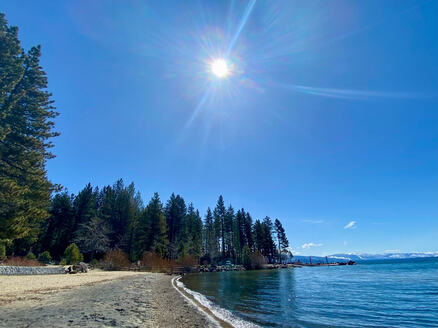
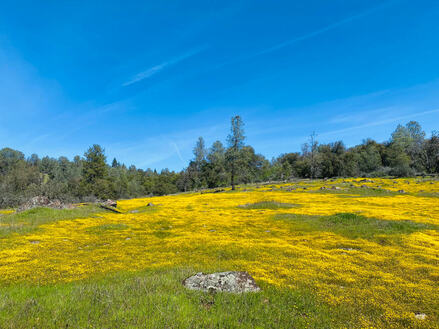
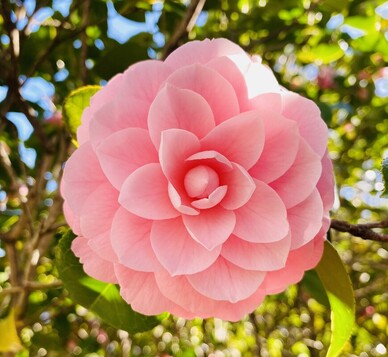

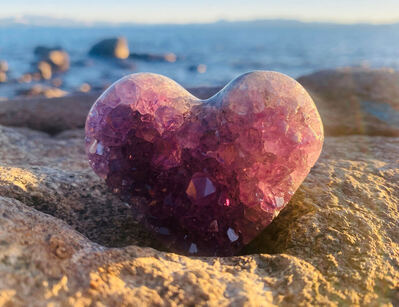
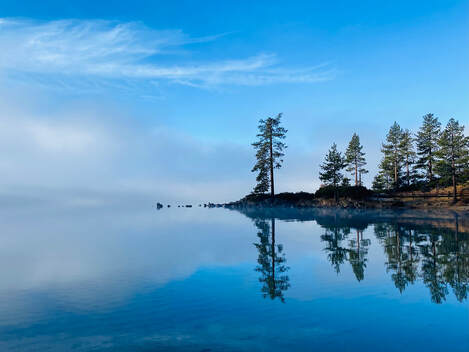
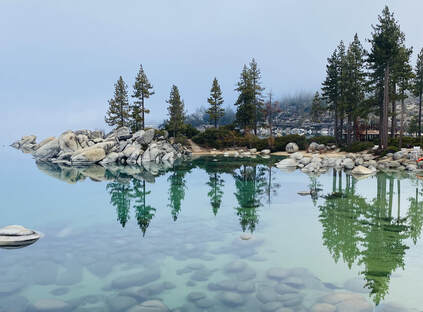

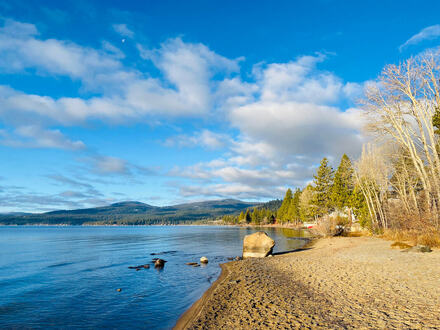
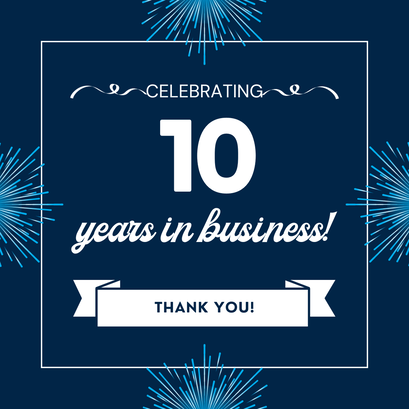
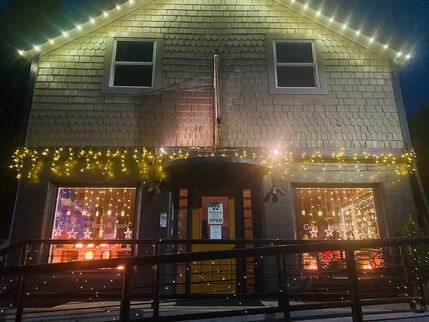
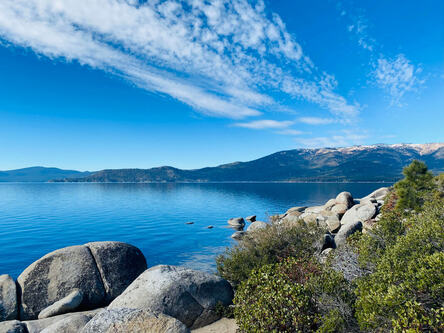
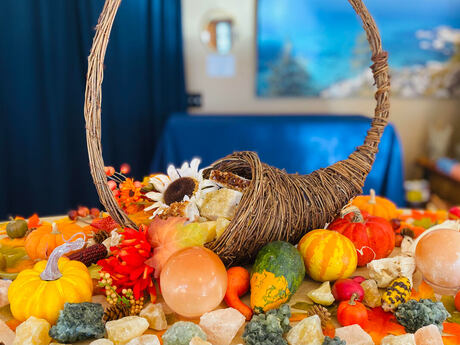
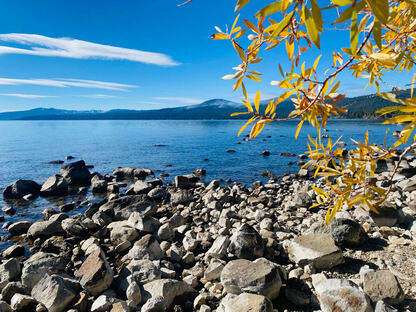
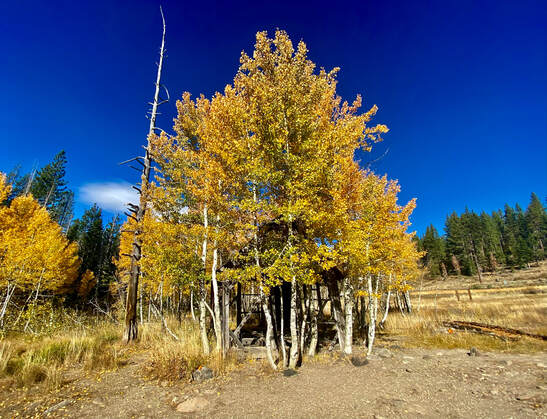
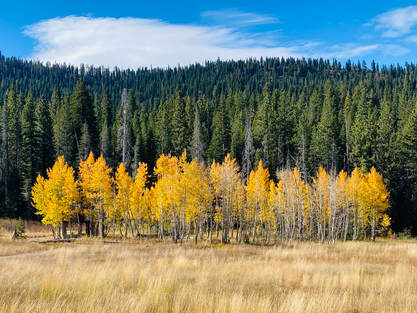
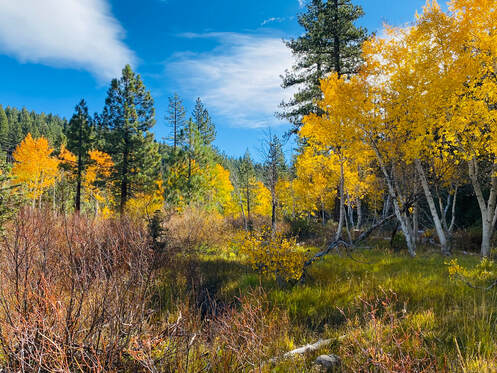
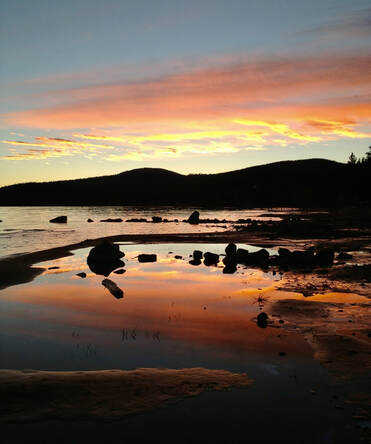
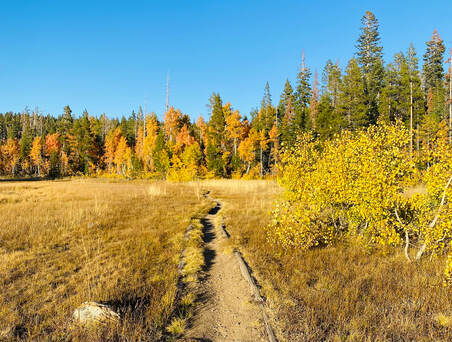
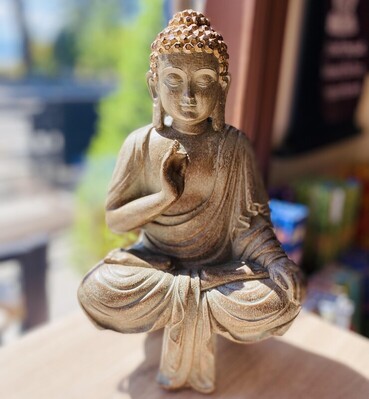
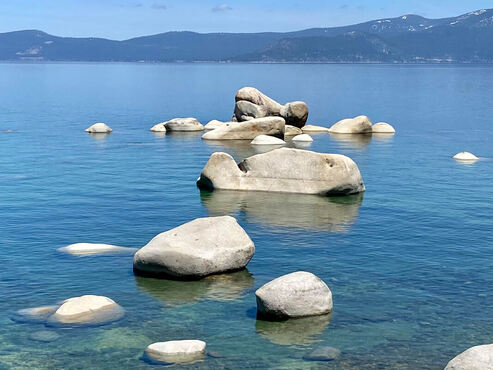
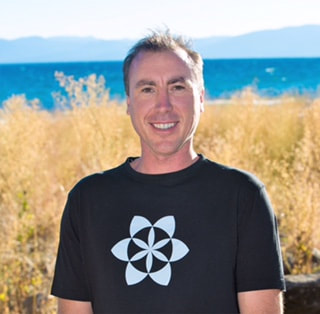
 RSS Feed
RSS Feed